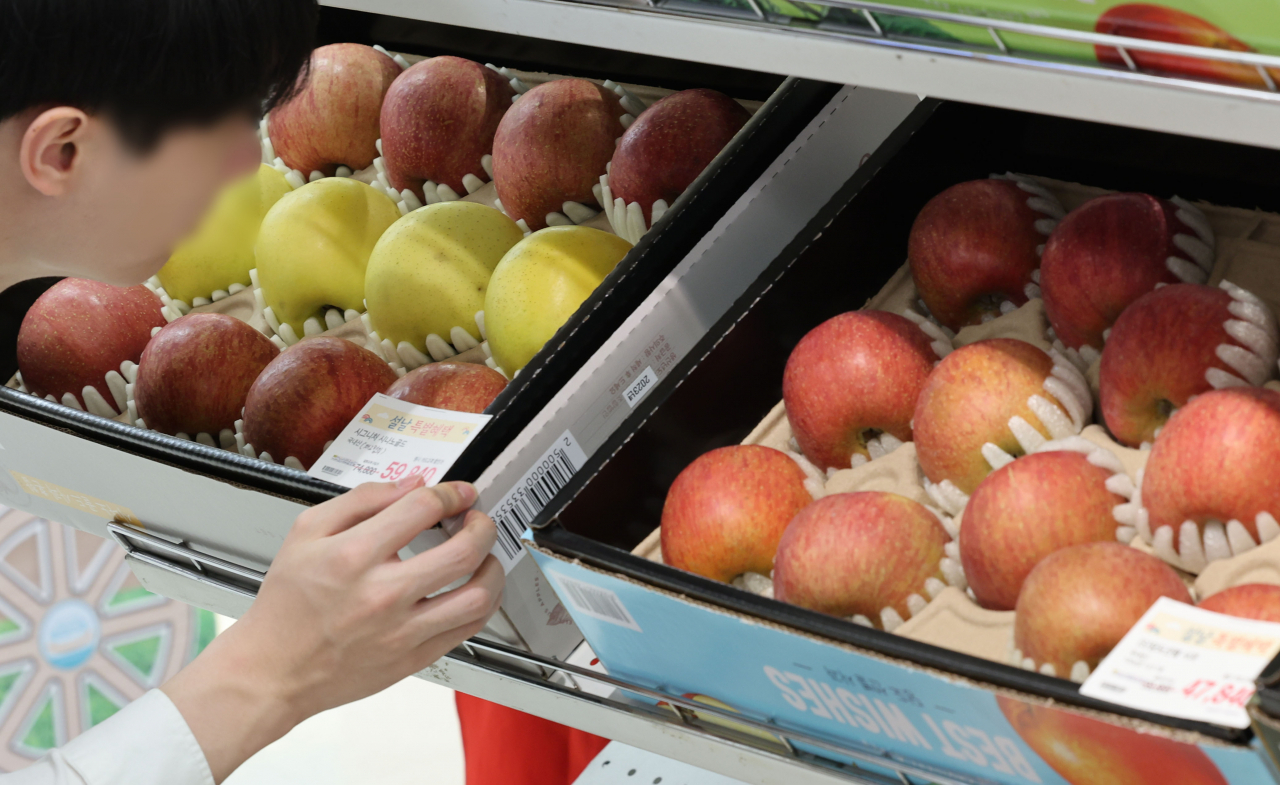
Korea's inflation grew at slower pace in January, coming down to the 2 percent range for the first time in six months, data showed Friday. The government warned on the possibility of prices resurging in the months ahead.
Consumer prices rose 2.8 percent on-year last month, according to data from Statistics Korea. The figure shows inflationary pressure easing significantly, following rises of 3.2 percent in December and 3.3 percent in November. It is also the smallest increase seen since 2.3 percent growth in July last year.
Price growth inched down due to a fall in international oil prices seen to mid-January, the agency explained. Oil prices work as a major source of inflationary pressure on Korea, a nation heavily dependent on energy imports.
After peaking at 6.3 percent in July 2022, consumer price growth gradually fell to 2.3 percent in July. However, the figure rebounded to 3.4 percent in August and had stayed over 3 percent for five straight months due to high prices of energy and produce.
Earlier this year, the government projected consumer prices to grow by 2.6 percent in 2024. It deemed that the figure will stay in the 3 percent range during the first half of this year, and fall to the 2 percent range in the second half.
Core inflation, excluding volatile food and energy prices, advanced by 2.6 percent on-year in January, the slowest growth since 2.4 percent in November 2021.
Yet prices of agricultural, livestock and fishery products surged 8 percent on-year.
The government vowed to closely monitor prices as inflation is yet to fully ease. It also remains far from the Bank of Korea's target, set at 2 percent.
"The prices growth could resurge to around 3 percent, as international oil prices have recently rebounded to $80 per barrel owing to the growing tension in the Middle East region," Finance Minister Choi Sang-mok said in a governmental briefing held Friday, referring to the disruption to international trade through the Red Sea.
"The government will make every effort to ensure a 2 percent price growth at an early date," Choi said.
The Bank of Korea also held a meeting and projected a potential rebound in prices.
"Considering the escalating volatility of oil prices due to geopolitical risks and high level of price of living, we cannot rule out the possibility that the (inflation) slowdown will lose its pace for a while and prices can rebound," the Bank of Korea's Deputy Gov. Kim Woong said in a separate meeting.





![[Weekender] How DDP emerged as an icon of Seoul](http://res.heraldm.com/phpwas/restmb_idxmake.php?idx=644&simg=/content/image/2024/04/25/20240425050915_0.jpg&u=)




![[Music in drama] An ode to childhood trauma](http://res.heraldm.com/phpwas/restmb_idxmake.php?idx=644&simg=/content/image/2024/04/25/20240425050929_0.jpg&u=)








![[Herald Interview] Mistakes turn into blessings in street performance, director says](http://res.heraldm.com/phpwas/restmb_idxmake.php?idx=652&simg=/content/image/2024/04/28/20240428050150_0.jpg&u=20240428174656)
